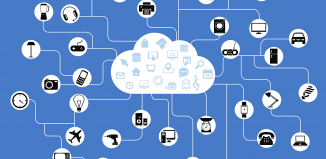Don’t Panic: The Web Is Not ‘Going Dark’
This post is also available in:  עברית (Hebrew)
עברית (Hebrew)
More widespread use of encryption in software will not make the internet “go dark,” nor will it hamper law enforcement investigations into crime and terrorism, according to a new Harvard study. Rather, continued expansion of internet-connected devices – such as vehicles, cameras, smart TVs, and more – will offer new opportunities for tracking targets.
“Law enforcement or intelligence agencies may start to seek orders compelling Samsung, Google, Mattel, Nest or vendors of other networked devices to push an update or flip a digital switch to intercept the ambient communications of a target,” it said. “These are real products now.”
The study was conducted at Harvard’s Berkman Center for Internet Society and received backing from high-ranking figures such as Matthew G Olsen, former director of the US National Counter-terrorism Center, well-known security expert Bruce Schneier, and Jonathan Zittrain of the Harvard Law School.
The study comes at a time where some members of the intelligence and law enforcement communities have been voicing demands to software vendors to implement so-called backdoors into their offerings, to allow for easier access to user’s data.
Currently law enforcement has access to all data retained by service providers with the appropriate warrants, however some pieces of software that employ full, end-to-end encryption prevent such access without the user’s cooperation.
The study, “Don’t Panic: Making progress on the encryption debate,” recognizes the challenges posed by increasing use of encryption, but contends that in most cases the means available will suffice.
“To be sure, encryption and provider-opaque services make surveillance more difficult in certain cases, but the landscape is far more variegated than the metaphor suggests,” it said. “There are and will always be pockets of dimness and some dark spots — communications channels resistant to surveillance — but this does not mean we are completely ‘going dark’.”
Some examples of data that is likely to remain open is the metadata even encrypted packets carry – those but of information that the internet relies on to route information from one end to the other. These include phone call records, location data, email addresses, and more.
What’s more, many Web services rely on analyzing unencrypted data for their operations to monetize it through advertising, and are unlikely to change.
“The trajectory of technological development points to a future abundant in unencrypted data,” the study said.





























